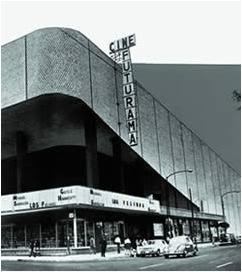Por qué la guerra contra el narco se convierte en nuestro Iraq
Es horrible la verdad, más cuando queremos que sea diferente, pero me ha impresionado de sobremanera este reportaje del TIMES de cómo somos vistos a través de los ojos extranjeros.
Lo comparto con ustedes:
Why Mexico's Drug War May Become Its Iraq
The no-nonsense government ads flash onto prime-time Mexican TV between soccer games and steamy soap operas. Bullet-filled corpses are shown sprawled on the concrete; ski-masked special forces are seen storming down residential streets; and bearded bulky capos are dragged before the cameras in handcuffs. "Today these killers are behind bars," says a booming voice-over. "We work using force for your security."
But while the spots boast of victories and progress, a rising chorus of voices across Mexico is complaining that the military approach to Mexico's crime problem is not bearing fruit. Leftists and human-rights groups have slammed the central role of the army and paramilitary police since President Felipe Calderón took office in 2006 and ordered 50,000 troops to fight the drug gangs. But in recent weeks, critics have been joined by some of the government's key allies, including members of Calderón's conservative National Action Party, regional business lobbies and the Roman Catholic Church. Such pressure could affect how the President sees through the drug war during the second half of his term, which ends in 2012.
Most criticism centers on the relentless gang-related violence, which has only worsened, even as thousands of traffickers are jailed or extradited to the U.S. In total, there have been more than 16,000 murders that appear to be drug related since Calderón kicked off the crackdown, with this January being the bloodiest month yet. Doubters now say soldiers may be inflaming the gang killings rather than diminishing them. "Security is not directly or principally related to the ability to use force, the number of police officers, the degree of militarization or the purchasing of weapons," the Mexican bishops conference said in a Feb. 15 letter to the government. "With the passage of time, the participation of the armed forces in the fight against organized crime has provoked uncertainty in the population."
Others argue that the violence has mushroomed because the army is directing its attacks at certain cartels, a tactic that only strengthens the rivals of those gangs. Representative Manuel Clouthier, who hails from a prominent National Action Party family, lashed out in a series of interviews this week that the omnipotent Sinaloa cartel of his native state has not been targeted. "In some places they have hit the gangsters. But in my state, everyone can see that the bad guys are being allowed to work," he told TIME. "There is a mafia cabal of criminals, politicians and businessmen and it has simply not been touched." Much of the bloodshed in Mexico is blamed on the efforts of this Sinaloa cartel to expand into new territories. Party leaders and officials swiftly hit back, saying that all criminal groups have been equally attacked.
There are also signs the Mexican public is losing its stomach for the fight. A Feb. 15 survey by Buendía & Laredo found that 50% of respondents thought the government offensive against drug traffickers has made the country more dangerous, while only 21% thought it had made it safer. Another 20% said it had had no effect and 9% gave no comment. Half of respondents also said they personally felt threatened by criminal violence, up from 35% who said they felt threatened in a 2008 survey.
These doubts come as the U.S. continues to throw its weight behind the campaign. Homeland Security Secretary Janet Napolitano signed an agreement for enhanced cooperation in the Mexican capital this week, declaring that "the collaboration between Mexico and the United States has never been stronger." The latest accord follows a hike in funding for the so-called Mérida Initiative to beef up Mexican security forces. In total, the U.S. has pledged $1.6 billion worth of equipment and training for its neighbor, including eight Black Hawk and 13 Bell helicopters for Mexico's army and federal police.
Whatever the criticism, Calderón himself insists that he will not steer away from his military strategy. Since taking power, he has identified with the fight against cartels as his personal battle more than any other Mexican President, breaking with tradition to don a green army uniform in one address to frontline soldiers. On Feb. 19, he went to the top military school to praise the efforts of the troops. "To confront these criminals without scruples, the presence of the armed forces has been and is fundamental," he said. It would also be tough for Calderón to send the soldiers back to the barracks while the violence is worsening for fear it would concede a defeat. This quandary has led critics here to regularly compare the conflict to the Iraq war in Bush's second term; it is a war in which the President cannot claim victory, cannot pull out of, and which only gets worse.
http://www.time.com/time/world/article/0,8599,1966880,00.html#ixzz0geqFCC32



Comentarios
Publicar un comentario